Juan Gabriel
Juan Gabriel

Alberto Aguilera Valadez, known professionally as Juan Gabriel, was a renowned Mexican singer, songwriter, and actor. Born on January 7, 1950, Juan Gabriel earned nicknames like Juanga and El Divo de Juárez due to his flamboyant style and significant contributions to the Latin music industry.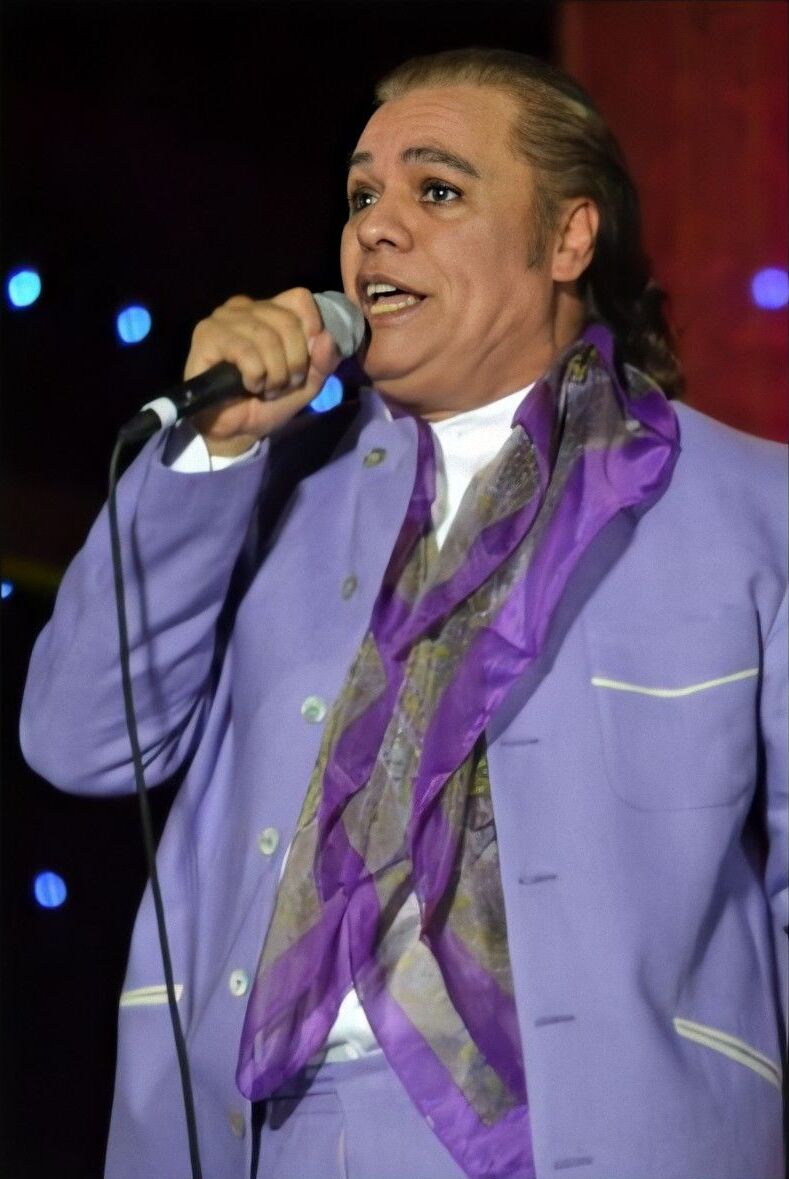
Throughout his career, Juan Gabriel sold an estimated 40 million records worldwide, making him one of Latin America's top-selling music artists. His album "Recuerdos, Vol. II" holds the record as Mexico's best-selling album, with over eight million copies sold.
Juan Gabriel's legacy extends beyond his impressive sales figures. He wrote approximately 1,800 songs, many of which have become classics in the Latin music canon. Some of his most famous compositions include "Amor eterno," "Querida," "Hasta que te conocí," "No tengo dinero," "Abrázame muy fuerte," "Siempre en mi mente," and "Lo pasado, pasado." These songs have been performed by Juan Gabriel himself as well as by numerous other artists.
Juan Gabriel's influence on Mexican and Latin American music is profound, and his songs continue to resonate with audiences around the world. He remains a pop icon and a symbol of creativity and passion within the music industry.

Alberto Aguilera Valadez, famously known as Juan Gabriel, was born on January 7, 1950, in Parácuaro, Michoacán, Mexico, to Gabriel Aguilera Rodríguez and Victoria Valadez Rojas. He was the youngest of ten siblings. His father's mental health struggles led his mother to relocate to Ciudad Juárez, Chihuahua, where Alberto attended El Tribunal boarding school.
During his time at El Tribunal, Alberto formed significant relationships with school director Micaela Alvarado and teacher Juan Contreras. He became particularly close to Contreras and lived with him for a year after escaping El Tribunal at the age of 13. It was during this time that Alberto composed his first song. Eventually, he returned to live with his mother in Ciudad Juárez and became involved in the local Methodist Church, where he sang in the choir.
In 1965, Alberto made his debut on the television show Noches Rancheras under the pseudonym Adán Luna. He began working as a singer at the Noa-Noa bar from 1966 to 1968 and wrote the song "El Noa Noa" during this period. Despite facing rejection in Mexico City while searching for opportunities in the music industry, Alberto persisted and returned to Juárez to continue his musical career.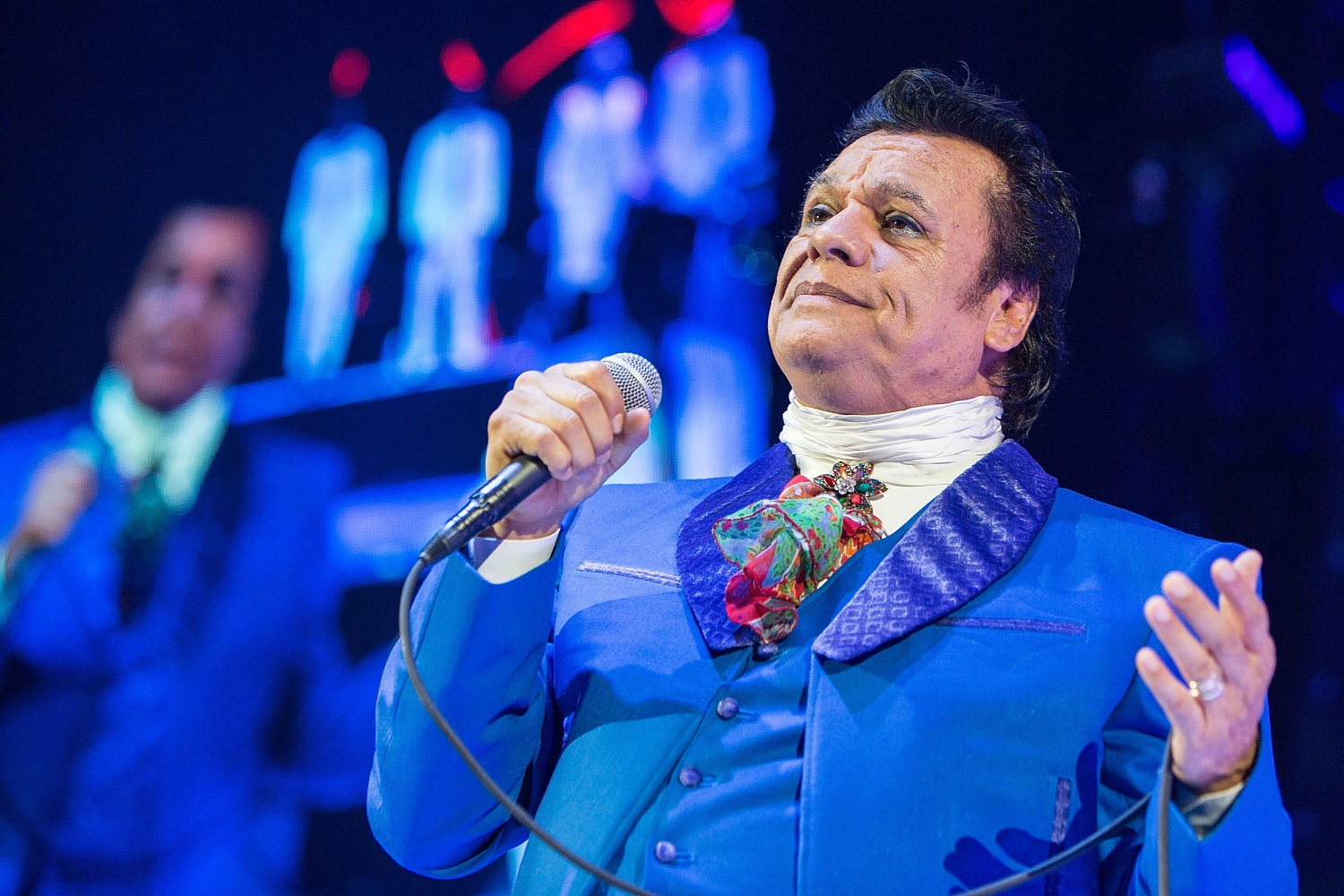
After trying again in Mexico City, Alberto faced adversity, including being wrongly accused of robbery and spending a year and a half in the Palacio de Lecumberri prison. It was during his time in prison that he wrote songs and met influential figures like Andrés Puentes Vargas, the prison warden, and Mexican singer La Prieta Linda.
With the support of La Prieta Linda and her husband Ofelia Urtuzuastegui Ruiz, Alberto was able to launch his professional career as Juan Gabriel. He found shelter and support in their home for about two years, during which he wrote more songs and laid the foundation for his successful career as a singer and songwriter.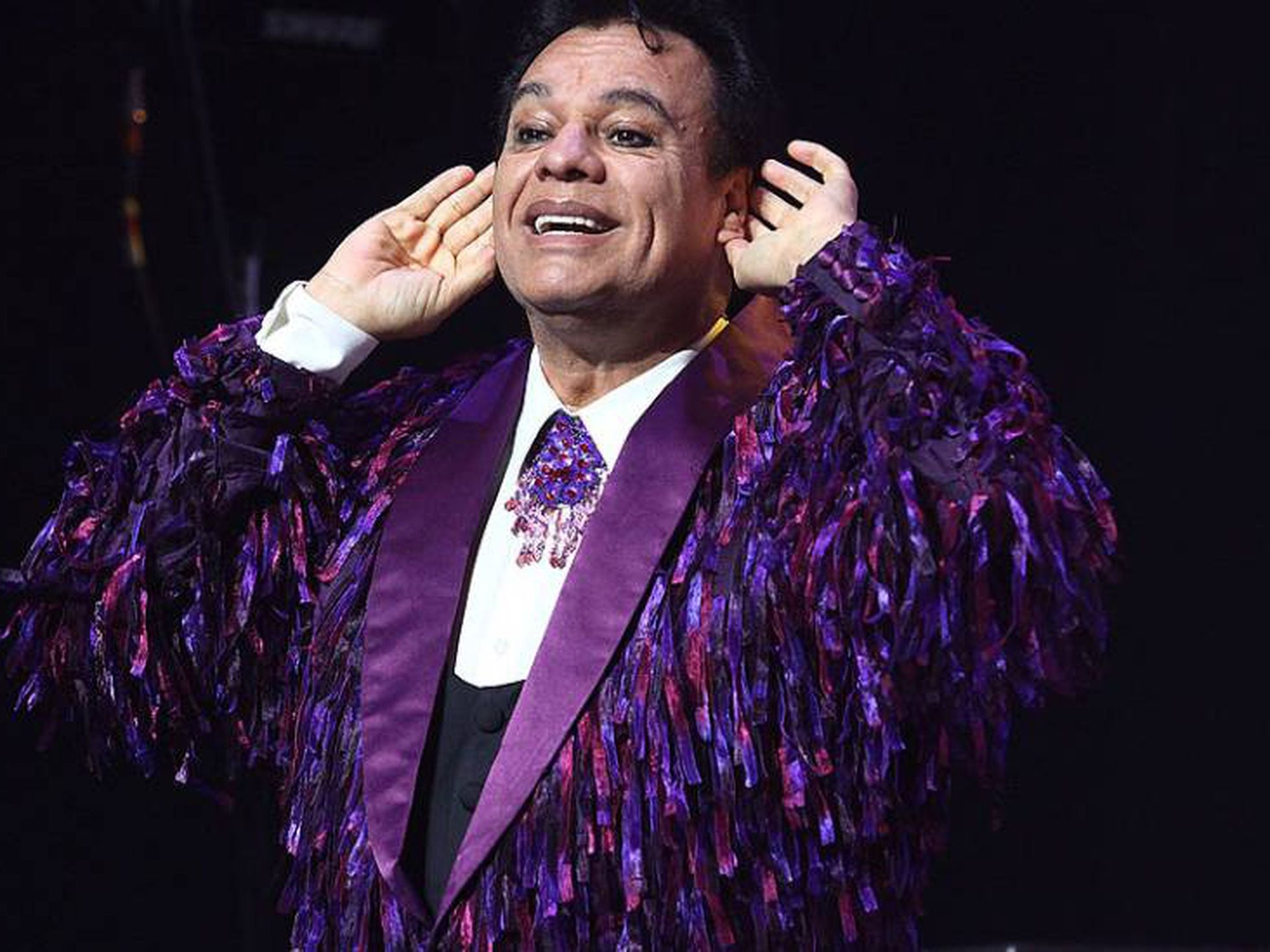
La Prieta Linda played a pivotal role in Alberto Aguilera's career at RCA Víctor, where he secured a recording contract. It was during this time that he adopted the stage name Juan Gabriel, combining "Juan" in honor of Juan Contreras and "Gabriel" as a tribute to his father.
In 1971, Juan Gabriel released his debut studio album, titled "El Alma Joven...". The album featured the hit single "No Tengo Dinero", which marked his first major success in the music industry. "El Alma Joven..." achieved gold certification from the Asociación Mexicana de Productores de Fonogramas y Videogramas (AMPROFON).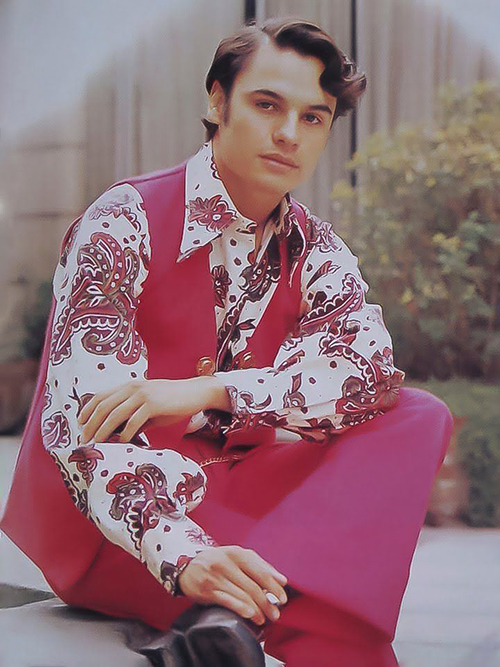
The following year, Juan Gabriel participated in the OTI Festival, showcasing songs like "Será Mañana" and "Uno, Dos y Tres (Y Me Dás un Beso)". Although these songs were not selected to represent Mexico, they received acclaim and were later recorded for his second album, "El Alma Joven II".
Juan Gabriel's career continued to flourish with the release of albums like "El Alma Joven III" (1973) and his first mariachi album, "Juan Gabriel con el Mariachi Vargas de Tecalitlán" (1974). The latter featured iconic tracks such as "Se Me Olvidó Otra Vez" and "Lágrimas y Lluvia".
In 1975, Juan Gabriel made his acting debut in the film "Nobleza ranchera", alongside Sara García and Verónica Castro.
Over the next fifteen years, Juan Gabriel's fame soared as he recorded 15 albums and sold 20 million records. His prolific songwriting skills, spanning various genres including rancheras, ballads, pop, rock, and disco, earned him recognition as Mexico's leading commercial singer-songwriter. His compositions became hits not only for himself but also for other prominent Latin singers and international stars, solidifying his status as a musical icon.
In 1984, Juan Gabriel's song "Querida" remained at the top of the Mexican charts for the entire year, underscoring his enduring popularity. Additionally, he received a Grammy nomination for "Best Latin Pop Album" for "Recuerdos, Vol. II", which featured the hit single "Querida".
Juan Gabriel's impact on the Latin music industry extended beyond his own recordings, as he contributed significantly as an arranger, producer, and songwriter for other leading artists such as Rocío Dúrcal and Isabel Pantoja. He produced albums for notable figures like Dúrcal, Lucha Villa, Lola Beltrán, and Paul Anka.
His 1984 release, "Recuerdos, Vol. II", is considered one of the best-selling albums of all time in Mexico, with reported sales exceeding eight million copies. In 1990, Juan Gabriel made history as the first non-classical act to perform at the prestigious Palacio de Bellas Artes. The proceeds from the sold-out concerts were generously donated to the National Symphony Orchestra.
The telenovela "Abrázame Muy Fuerte", which began airing in Mexico on July 31, 2000, featured the titular song as its main theme. This song became the most successful Latin single of 2001 and earned Juan Gabriel two Billboard Latin Music Awards in 2002. It also won the Pop Song of the Year award at the 2002 Lo Nuestro Awards and ranked seventh on the Hot Latin Songs 25th Anniversary chart.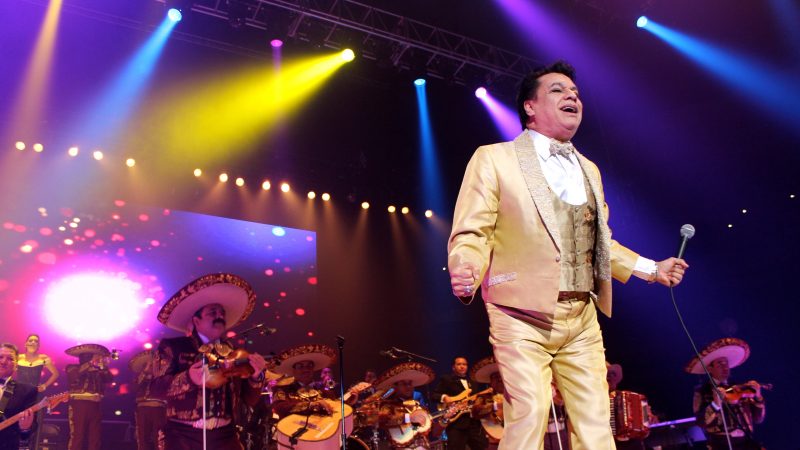
At the time of his passing, Juan Gabriel was touring the United States and was scheduled to perform at a concert in El Paso, Texas. He achieved remarkable success on the Top Latin Albums chart, with four albums reaching number one between 2015 and 2016. His album "Vestido de Etiqueta por Eduardo Magallanes" reached number one just a week before his death, setting a record for the most albums to peak at number one on the chart within a short period.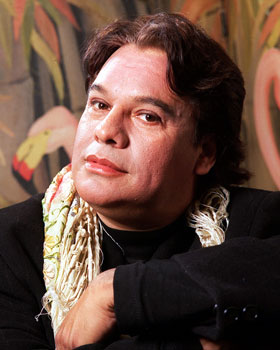
Juan Gabriel also made significant contributions to the Hot Latin Songs chart, with 31 songs charting and seven reaching the number one spot, solidifying his status as a legendary figure in Latin music.
References
- "Muere el cantante y compositor mexicano Juan Gabriel". Univision (in Spanish). 28 August 2016. Retrieved 28 August 2016.
- a b c d e "Sears Presents Juan Gabriel's U. S. Tour". Hispanianews.com. Archived from the original on 24 September 2015. Retrieved 26 March 2015.
- ^ Martínez-Staines, Javier; Univision Noticias: La importancia de Juanga, según los intelectuales' [1] (In Spanish) Retrieved Present.
- a b Bautista, Bernice. "Juan Gabriel, Mexican superstar singer-songwriter, has died". Yahoo.com. Archived from the original on 29 August 2016. Retrieved 14 March 2022.
- a b c "Juan Gabriel, The 'Divo Of Juarez,' Dies At 66". NPR.org. Retrieved 28 August 2016.
- ^ "The 30 Most Influential Latin Artists of All Time". billboard.com. 28 April 2015. Retrieved 20 March 2018.
- ^ "Las cifras millonarias de Juan Gabriel". Semana (in Mexican Spanish). 29 August 2016. Retrieved 2 March 2023.









































